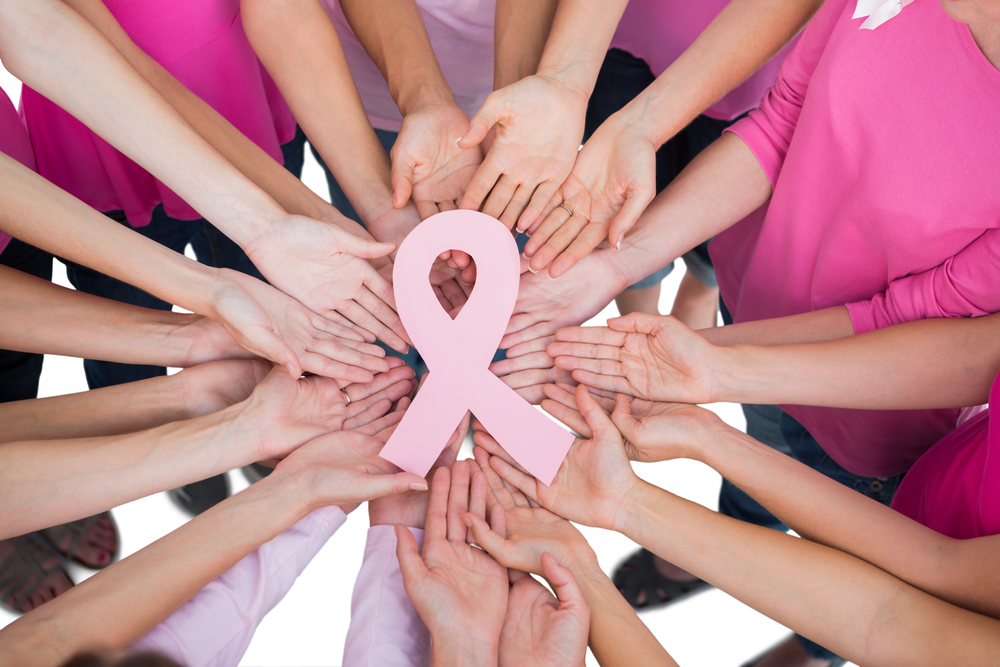A Breast Cancer Survivor’s Perspective on Second Opinions

The first physician recommended a mastectomy. The second physician disagreed, saying a simple lumpectomy would be sufficient. The third opinion saved Jenyse White’s life. Take it from this breast cancer survivor: getting a second opinion, and even a third, is critical when facing any cancer diagnosis.
A Surprising Diagnosis
Jenyse, a Virginia-based realtor and mother to three sons, received a Stage 2 breast cancer diagnosis only a few months after her mother-in-law passed away from lung cancer. “I learned from her experience not to take the first opinion, and to advocate for myself," Jenyse said.
She described her mother-in-law as being from an older generation that never questioned their doctor’s opinion so she never asked about alternative treatment options. “She had no life because of the treatments she did," Jenyse explained. "If she had gotten a second opinion, she might have at least enjoyed the last few months of her life.”
At 43, Jenyse’s breast cancer diagnosis came as a shock, especially considering she had no family history or prior health issues. Her doctor recommended a mastectomy, a treatment that is both physically and emotionally intense. Jenyse asked him about getting a second opinion before moving forward. With his encouragement, she made an appointment a few weeks later at another well-established cancer center in the area.
Getting a Second and Third Opinion
The second doctor had a drastically different opinion. She didn't agree that the cancer was that advanced and said that a simple lumpectomy of the tumor in the right breast would be sufficient. Feeling uneasy about the two different opinions, and trusting her gut, Jenyse sought a third opinion from another hospital. This physician agreed with the first doctor’s diagnosis and treatment recommendation to do a mastectomy.
Jenyse decided to move forward with getting a unilateral mastectomy through her initial physician. “I was comfortable with him from the beginning,” she said. “But because of my mother-in-law’s experience, I wanted to do my due diligence and get a second opinion.”
During surgery, the tumor in the left side of the right breast was found as expected, but three cancerous tumors were also found in the right side of the breast which hadn’t shown up on any of the imaging. These would have been completely missed if she had done a lumpectomy as the second physician suggested. “If I had gone with her opinion, I would still have cancer,” Jenyse said.
Advocating for Your Health
Ultimately, she said she has no regrets about getting a second opinion and going for a third opinion empowered her. “It made me advocate more for myself. It pushed me to ask the right questions, push for further tests and I also had to push for insurance to cover the third opinion,” she said.
Because the third hospital was almost three hours away, the insurance company thought she had enough imaging advice from the first two hospitals, even though they produced such different opinions. However, after a few phone calls, Jenyse’s persistence paid off and her insurance company agreed to cover the third opinion considering her cancer was Stage 2.
Advocating for herself meant proactively gathering all of her medical information, including mammograms, pathology reports, blood tests and more, and taking it with her to each appointment. “I always got copies of my reports and imaging as soon as they were available,” she said. “ I learned from my mother-in-law’s experience to make sure you have your own copies of your medical records. Also, at Here for the Girls (her breast cancer care support group), they encourage everyone to put all of your medical information in a folder and take it wherever you go for appointments.”
Jenyse carried CD copies of her mammograms and paper reports in a folder to each appointment because her hospital didn’t offer an online patient portal at the time. “That would have made it so much easier to communicate with my doctors,” she said. “It would have been great especially for some women I know who are trying to get another opinion from someone out of state.”
When asked what advice she would give to other women facing a breast cancer diagnosis (or anyone experience any cancer diagnosis), she answered: “The biggest thing is to not make a quick decision even though you feel like you have to. Find out all the information before you make a decision.”
Ultimately, a second opinion will either confirm your diagnosis and treatment plan or provide an alternative perspective that could save you from expensive and invasive treatments. The peace of mind alone can be worth the time and effort to seek a second opinion, but overall, a second opinion could truly save your life.
Be your own advocate in your healthcare
Always ask your physician about getting a second opinion on your diagnosis and treatment plans. If they don't offer an electronic patient portal to easily share your imaging and records with the second opinion physician, ask for it. It'll save everyone time and a headache, and you won't have to worry about keeping up with your CDs and folder of medical documents. It's your health, after all. You have the right to ask for more and better.




